What is the destiny of the unrighteous? Christians over the centuries have put forward three major options: eternal conscious torment (traditionalism), temporary torment followed by salvation (universalism), temporary torment followed by destruction (annihilationism). In this lecture we’ll cover the main texts supporting the annihilation of the wicked as well as three logical problems with the traditional view.
—— Notes ——
Understanding Immortality
Gen 2.17
- what was the original consequence for sin that God promised? death!
- Gen 3.19, 22-23 expelled from tree of life
- Gen 5.5 Adam died
- from the beginning the punishment for sin was death
proof
- 1 only God is immortal by nature (1 Tim 1.17;15-16)
- 2 humans are by nature mortal (will not by default live forever)
- 3 God gives the saved immortality
- through the gospel (2 Tim 1.9-10)
- through resurrection (1 Cor 15.52-53)
- therefore damned will not be immortal (John 3.16; Rom 6.23[1]; 1 John 5.11-12)
Biblical Language of Destruction
Psalm 37 uses terms to describe the fate of the wicked
|
v2 |
wither quickly like the grass |
|
v9 |
cut off |
|
v10 |
be no more |
|
v20 |
perish |
|
v20 |
vanish like smoke |
|
v22 |
cut off |
|
v27 |
reward for good is to live forever |
|
v28 |
cut off |
|
v34 |
cut off |
|
v36 |
passed away |
Mal 4.1-3 day is coming that will set them ablaze, they’ll be ashes under your feet
Mat 3.12 burn up chaff [wicked] w/ unquenchable fire
- unquenchable = cannot be put out until it consumes the fuel
- Jer 7.20: God’s wrath is unquenchable, so he tells Jer to stop praying…but after the Babylonians destroyed Jerusalem and carried the people into exile, his wrath ended
Mat 7.13-14 narrow gate leads to life; broad way leads to destruction
Mat 10.28 destroy body and soul in hell
- Hades = greek for Sheol = realm of dead (the grave)
- Gehenna = valley of Hinnom = burning garbage dump where they used to sacrifice children to Moloch that Jesus used as an analogy for the final judgment
Mat 13.40-42 all law-breakers thrown into fiery furnace
- “weeping and gnashing of teeth” indicates anger not suffering
- see Luke 13.28: weeping & gnashing b/c you see Abr. Is. Jac. in kingdom but yourselves cast out
Mat 18.8-9 better to enter life crippled than to be thrown into eternal fire (hell of fire)
- life contrasted with fire
Mat 25.46 eternal punishment vs. eternal life
- punishment that lasts forever not that is experienced forever (death penalty is irreversible)
- Heb 5.9 eternal salvation: process of saving was finite but outcome lasts forever
- Heb 9.12 eternal redemption: process of redeeming was finite but outcome lasts forever
Gal 6.8
- sow to the flesh -> reap corruption
- sow to the spirit -> reap eternal life
Heb 10.26-27 those who go on sinning will get a fury of fire that will consume
2 Peter 2.6 Sodom&Gomorrah condemned to extinction as example of what happens to ungodly
2 Peter 3.6-7 future destruction is like Noah’s flood
Jud 1.6-7 Sodom & Gomorrah are an example in undergoing the punishment of eternal fire
- inhabitants of S&G were violently slain by fire
Atonement
Romans 5.6 “Christ died for the ungodly”
1 Corinthians 15.3 “Christ died for our sins”
1 Peter 3.18 “Christ also suffered once for sins…being put to death in the flesh”
- it was not his ongoing suffering that atoned, but his death
- Jesus’ bore the punishment for our sins
- Jesus’ punishment involved torture and death
- if the true punishment for sin is eternal torment, then Jesus did not bear even close to the punishment for even one person
- if the punishment for sin is death, then living forever in a fire wouldn’t make sense
Character of God
- what does it say about God that he cannot find satisfaction unless he tortures conscious, intelligent beings forever in unending agony?
- isn’t that the worst possible thing you could possibly imagine?
- this is all allegedly b/c his infinite holiness is infinitely offended
- but the greater someone is, the more they can let things go
- What kind of God sets up the universe so that those who reject him suffer torture with agonizing shrieks of pain in unending pain?
Proportional Justice
- the whole idea of justice is equity (think of a balance)
- Prov 11.1 God hates a false balance
- if someone committed nothing but evil for 50 years, what should his punishment be?
- if after 1,000 years, that person is not nearly complete w/ his punishment, how is that just?
—— Links——
- see RethinkingHell.com for lots of resources on annihilationism
- check out the Chris Date vs. Phil Fernandez debate on hell
- See other episodes in this Theology Class
- Find more Restitutio classes here
- For more posts on hell, see these posts
- Intro music: Jazzy Frenchy by bensound.com. Licensed under Creative Commons: By Attribution 3.0 License.

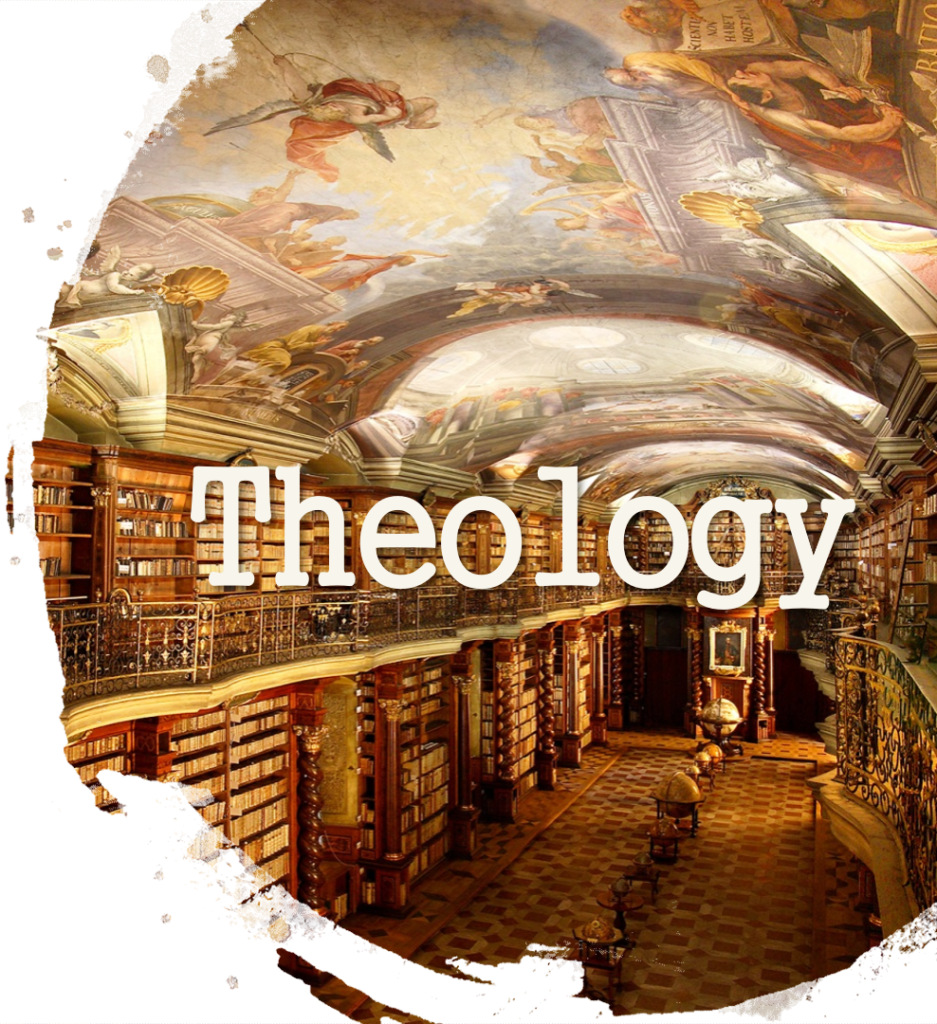
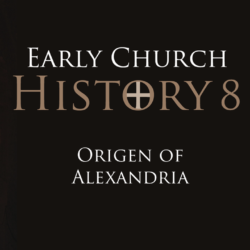
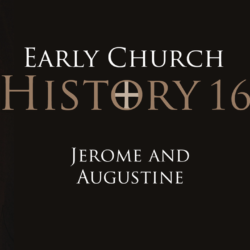
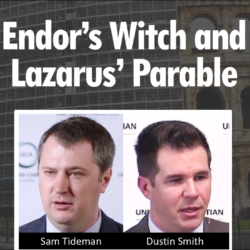

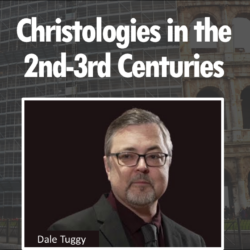

Great podcast. There is so much positive in what you say, I hesitate offer any any critique. But permit me…
As you mention, the word Gehenna is a Greek transliteration of the Aramaic/Hebrew “Gei–Hinnom”, the “Valley of Hinnom” which defines Jerusalem’s western and southern sides. Although the “burning refuse” description is a favorite for tour guides and pastors, Gehenna has nothing to do with a continual burning of garbage in the Valley of Hinnom during the time of Jesus. This idea of continual garbage burning appears first from a medieval Jewish commentator, David Kimchi (ca. AD 1200), but it is wrong. Here is why:
1. Garbage that burns is a relatively recent phenomenon. One look in a modern trash can shows that our garbage sure would make a nice fire as it is made up mostly of paper and plastic. But it is all recent “junk”. Most garbage in the Second Temple Period (the time of Jesus) would not have the same flammable character: broken pot shards, some food scraps, etc., but many of these items would be used secondarily (e.g., food scraps for animal feed).
2. Most items that would burn in the Second Temple Period would be used for controlled heating. Firewood-type material was a valuable commodity.
3. As mentioned above, there is no evidence in contemporaneous Second Temple Period sources of a refuse fire constantly burning in the Hinnom Valley. The idea apparently originates from Rabbi David Kimchi’s commentary on Psalm 27 which dates to over 1000 years after Jesus (ca. AD 1200).
4. There is no archaeological evidence of a continually burning fire from the 2nd Temple (or any other) Period.
5. Jerusalem receives an average of more than 20 inches of rainfall a year, and it all comes in a period of about four months (Dec-March). During these months the rain can come down in sheets for days at a time. Nothing outside would keep burning.
6. During the long dry summer, if a fire started in the Hinnom Valley or anywhere else in the land of Israel, people would immediately put it out, as there would be a danger of a spreading brush fire.
We need to look no further than the Bible for why Gai-Hiinnom (Gehenna) came to be the perfect example of how God will judge and purge sin from this earth with a relatively quick, but devastating, judgment. The people of Israel were sacrificing their children to a pagan god in this valley. This activity is the epitome of how far man can stray from God. God said – “I will destroy it…This sin will be stopped…I will make it a valley of slaughter…and their dead bodies will be food for the birds of the air” (Jeremiah 7:31-33, 19:4-7).
Again, thanks for the podcast lecture.
Correction on my previous comment. I wrote incorrectly that Gehenna was the Greek transliteration of Aramaic/Hebrew. I think it is only Hebrew.
Hi, thanks so much for the clear and biblical presentations. Just a thought on the web page… can you lock the media player up the top? So when scrolling down to follow the text, one can still pause the player easily.
Bill, thank you so much for this correction and your kind way of expressing disagreement. I’m convinced you’re right. We are all in this together.
Sean mentioned a question a listener had about (perhaps pertaining to a different episode) who the righteous would rule on the earth during the millenium, and he answered vaguely, that maybe all the “saints” resurrected would rule one another. That really surprised me. The Scriptures make it clear the nations will all be resurrected, all the dead, good and bad, and they will stream to Zion and get instruction. “And the nations will beat their swords into ploughshares … and they will learn war no more … the lion will eat straw like the bull …” (Isa 2, 11)There are 10 passages in the gospels in which Jesus speaks about what it will be like during his rule, when the people of Sodom and Gommorah, the doubters of Jesus’s day, the queen of Sheba, etc. will all be living together in the kingdom on earth under Christ’s rule (“The queen of the South will rise up at the judgment with this generation and condemn it.” – Matt12:42). Jesus said those who lived in Sodom will shame those who witnessed Jesus in that day. It’s very clear from the Bible that this learning war no more and “getting with the program” is a process that will take 1,000 years, and at the end, many will choose, still, to turn against Christ and God and side with the devil. The idea that only a small (tiny) number of people who have ever lived on this planet (those who make it through the tribulation) will be the ones to live in the kingdom under the rule of Christ and the saints is portraying a God who is completely unfair. It implies that all those who never knew Christ or had the opportunity to believe in him or who didn’t have the luck of being born at the end of this system don’t get resurrected and don’t get an opportunity to learn about Christ and accept him as king. He will rule the nations with an iron rod. Psalm 110:2: “Rule in the midst of your enemies.”
I’d love to hear a podcast discussing those 10 passages that no preacher or teacher ever teaches on. I always wonder why something Jesus spoke in depth about is ignored. I like to say: “How many times does Jesus have to say something before people will listen?” The kingdom, clearly, is going to be a wild time, with all the “wicked” resurrected along with the “good.” The works they do in that period is what they will be judged on in the end (written in those books), as they will have paid the wages for sin with their prior death (so none of their prior works will be counted). No wonder Jesus is going to have the millions (??) of saints ruling as kings and priests on thrones in the kingdom with him. There is a lot of work to be done!
While I always appreciate and enjoy your instruction, the jury is still open on this issue of annihilationism. Below are some thoughts that I noted as I was listening that I am still sorting through in my mind. I would welcome your thoughts.
Genesis 2:17 –The result of Adam and Eve’s disobedience introduces a discussion about “death”. Did they “surely die”? What does “surely” mean? The actual words are “die die”. And the word “mooth” has many “death” applications to include “dying prematurely”, according to Strong’s Concordance. I think they “die died.” They immediately “died spiritually” – the “first “mooth”; and then they died physically – the “second mooth.” I think the “spiritual death” was God removing His spirit from them. All humans since Adam and Eve are “conceived in sin and born in iniquity.” They are a body and soul, with a dead spirit. That is the “sin nature” we inherited. We come into existence spiritually separated and in rebellion toward God; wanting to “do our own thing.” That status of disconnection from God is what condemns us because at some point as God “draws all men unto Himself” we have to choose to submit to His authority or continue “going our own way.” We are all born “dead in trespasses and sin” (Ephesians 2:1) which is a description of our spiritual condition before salvation. This helps explain how all our righteousness is as filthy rags in the eye of God. (Isaiah 64:6) This also comes into play with the discussion on hell and punishment.
Genesis 3:19 – “Returning to dust” is part of the curse after Eve and Adam rebelled. Returning to dust was the interim consequence of their sin until the resurrection. I don’t think returning to dust was never the original intent of God when He made man. The logic is that everything changed into the opposite of what it was because they rebelled against God’s authority.
Genesis 3:22 – Stating that immortality was conditional of eating of the tree of life is not supported in this context. There is nothing that even implies that Adam and Eve regularly “at of this tree” prior to their rebellion against God. Only after their rebellion would they “live forever” if they ate. The point is that prior to their rebellion they were already “everlasting beings” and would live forever, physically and spiritually. In their state of rebellion (sin) God says that the tree of life would have been a means for them to continue living forever if they ate of it. And they would be in their rebellious (sinful) state. Their rebellious state was the show-stopper. Again, there is no specific explanation. Would they live forever from eating one time? Or would they have to eat of it daily, weekly, monthly, or annually in order to “keep their immortality”. I think there really was a tree and that is why God kicked them out of the garden. But that is about all we can take out of this context. The idea that immortality is “conditional” of eating from the tree is applying a pretext to this text in order to establish a “context” that I don’t think is there.
Genesis 5:5 – Adam died and his body “returned to the dust”, which was the result of his rebellion against God. Adam’s soul went to sleep. It did not cease to exist.
2 Timothy 1:9 – This verse is describing God’s Plan from the beginning, which was a means of restoring mankind to the original condition before the fall, because God knew all along that Adam was going to rebel. This idea was unknown until Jesus showed up. It was a “mystery” until Jesus was resurrected. The picture is now complete. This is not an argument that immortality is a “reward” or “gift” from God it is the restoration of God’s original plan for man to be everlasting.
Matthew 7:13 – There is nothing in this context that says Jesus is talking about eternity. The gateway Jesus is referring to is Him being the only way, truth, and life. Choosing the hard way through the narrow gate of the Messiah leads to life. The word zoe is life or lifetime as it applies to our earthly existence. In context, Jesus is giving all kinds of advice on how to live the best life. I don’t think we should read into this text an “eternal life” pretext. Doing so is eisegesis.
Matthew 10:28 – Translating sheol as grave does not put any hole into the Eternal Conscious Torment (ECT) idea. It may be if you insist that the soul does not “sleep”. In that sense the ECT pundits are confounded. However, we have already proved that point. The soul of one without Christ is asleep just as the soul of the believer. The souls are still existent. The souls are still everlasting (not eternal). When that unsaved soul is resurrected, it is resurrected to judgment,
John 5 28-29 – “Do not marvel at this, for an hour is coming when all who are in the tombs will hear his voice and come out, those who have done good to the resurrection of life, and those who have done evil to the resurrection of judgment.”
And, they will go away to eternal punishment,
Matthew 25:46 – “And these will go away into eternal punishment, but the righteous into eternal life.”
If resurrection is the “key to immortality” (or eternal life) and it is a reward for the righteous, why are the wicked getting it too? The answer is that they are being resurrected to judgment and everlasting punishment. Redefining everlasting punishment as a “result” that “is final” or “lasts forever” I think is molding the definition to make it fit. Using this idea to claim that Christ did not “pay the penalty” for sin because he did not “suffer forever” completely glosses over the requirement that “without the shedding of blood there is no remission of sin.” Jesus “shedding His blood” as the “Lamb of God that takes away the sin of the world” is the issue. He is the ultimate sacrifice. The “price” or “cost” of sin is the shedding of blood either from the sacrificial animal or the Lamb of God. This has nothing to do with sentencing of those found guilty because they either did not offer the animal sacrifice or they did not put their trust in the blood of Christ.
“Proportional justice” has nothing to do with the verdict of guilty or innocent. It has everything to do with the level of punishment based on the “crime” or the “sins” committed. “Sinners” are found innocent or guilty as the verdict of their status that is tied to the sacrifice of Christ. The verdict is the result of rebellion against God’s authority. They are not found innocent or guilty because of the sins they commit. This is why we are told that even our “righteousness” is as filthy rages in the sight of God. Even “good” people are destined to everlasting punishment, not because of their actions but because of their status of rebellion against God’s authority.
Based of Jesus’ words, the level of punishment they receive as a part of their “sentencing” does depend on their actions. Jesus spoke of the day of judgment being more tolerable for Sodom, Gomorrah, Tyre and Sidon than the towns that rejected his message. The context clearly shows levels of punishment at the day of judgment. The statement that, “There is nothing in the bible that tells us that.”, in reference to punishment for the number of sins committed is misleading. Jesus is telling us otherwise. Trying to apply our modern-day legal structure to what Jesus said is anachronistic. “More tolerable” is not specific or precise, but the concept is clear. The person who “lived a good life” is still in rebellion to God’s authority and has earned “everlasting punishment” – – – at a “more tolerable” level. This “sentence” has nothing to do with time. It is everlasting. The levels of punishment will be determined by the actions taken during their lives.
Psalm 37:10 “In just a little while, the wicked will be no more; though you look carefully at his place, he will not be there.” I think this is a case of interpretation. There is no “his” place, and there is no “he” who is not there. This verse simply states that wickedness, evil, sin, will be no more, which is a common description of the Kingdom. This does not apply “individually” as there are no words to support that idea of a personal or individual experience. This is the concept of “sin will be no more” that is clearly described elsewhere in reference to the Kingdom. I don’t think it can be used to say “the sinner” will no longer exist.
These are just some of my thoughts. I know everyone brings their own degree of pretext to any study. I always try to minimize that. At this point I am still seeing a large degree of what I think is a pretext with many of the verses that are given as “proof” or “support” for the idea of annihilationism. I am still sorting through all this and am looking forward to number 8.